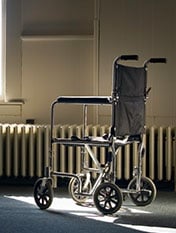Answers To Your Questions About Georgia Workers’ Compensation

At The Law Office of Bryan S. Hawkins, we dedicate our entire legal practice to Georgia workers’ compensation law. Bryan Hawkins spent the first part of his career in workers’ compensation defense before being drawn to help injured workers, so he has extensive knowledge of the defense’s strategy — it’s like having the other team’s playbook.
If you have been injured at work, talk to one of our caring work injury attorneys. The Law Office of Bryan S. Hawkins can be reached in Augusta at 706-305-1130. Call today for your free initial consultation to discuss any workplace injury or workers’ comp claim. Read on to learn more about workers’ compensation.
What is the history of Georgia workers’ compensation?
The Georgia Legislature passed the first comprehensive workers’ compensation legislation in 1920. It allowed employees who were injured on the job to recover compensation for medical benefits, lost wages, permanent disability and death benefits.
What are examples of workers’ compensation benefits?
Injured workers can receive workers’ compensation benefits for medical bills, prescriptions, physical therapy, temporary partial disability, permanent partial disability and rehabilitation supplies. Family members can receive death benefits and burial expenses.
Can I receive lost wages for my job injury?
The first step in determining the correct amount for workers’ compensation benefits is to calculate your average weekly wage. If you would like assistance verifying the lost wages amount free of charge, talk to Bryan. We offer a free, no-obligation consultation.
What is a permanent partial disability rating?
A permanent partial disability rating (PPD) is issued by the authorized treating physician when the injured worker reaches maximum medical improvement (MMI).
Can I choose my own doctor for medical treatment?
It is very important to seek prompt medical attention. It is also important to note that your employer’s doctor may not always have your best interests in mind. Talk to one of our lawyers. We can help you understand your rights to medical treatment and work to protect those rights.
What is an independent medical evaluation (IME)?
An IME is an opportunity to have a different doctor physically examine an injured worker and review their medical records and diagnostic tests for the purpose of providing a second opinion. The IME doctor should make a diligent effort to address some of the issues the patient is having and try to figure out what is or is not going right with the medical care. The doctor may also address the injured worker’s current work restrictions, treatment options, the necessity of a recommended surgery, and when applicable, the injured worker’s permanent partial disability rating if one has been issued.
How long do I have to report my work injury?
If you are an injured employee, you have 30 days from the date of your injury to notify your supervisor of the workplace accident injury.
Do workers’ comp benefits continue after my employment ends?
If the work accident occurred on or after July 1, 1992, employees can claim benefits for a period of up to 400 weeks. Workers who have suffered a catastrophic injury, however, may be entitled to lifetime benefits. These benefits continue even if the employee leaves the current job through a layoff or resignation.
Can I receive workers’ compensation benefits for a burn injury?
If you have suffered burns at work, you can file a claim for workers’ compensation with your employer’s insurance carrier or the insurance carrier of your deceased loved one’s insurance carrier. In addition to your medical expenses, workers’ compensation may also provide you with temporary or permanent partial or total disability benefits. In some cases, seriously injured victims may receive lifetime benefits. The immediate family members of workers who are killed may receive survivors’ benefits, reasonable funeral costs and burial expenses.
Does Georgia workers’ compensation cover mental health issues?
For the most part, Georgia law about workers’ compensation excludes mental health needs. However, a psychological condition that is connected to a physical injury (PTSD, for example) may be eligible for benefits.
A preexisting mental health condition that worsens due to an occupational accident or repetitive motion injury may fall within the scope of the workers’ compensation program. The fact that a person received mental health treatment prior to a work-related injury or illness will not necessarily preclude coverage. However, claimants may need strong evidentiary support to demonstrate the causal relationship between a physical injury and a preexisting condition.
A psychiatric illness could have a significant impact on a person’s bodily well-being. In some instances, physical conditions that accompany a decline in mental health and require treatment could qualify for benefits.
Do workers’ compensation insurance companies use surveillance video?
In our experience handling workers’ compensation claims, we estimate that approximately 75 percent of cases involve surveillance video after a Notice of Claim is filed with the Georgia State Board of Workers’ Compensation.
Get Started With A Free Case Evaluation — Call Now
To schedule your free initial consultation with a workers’ compensation attorney at The Law Office of Bryan S. Hawkins, call our Augusta law firm office at 706-305-1130. You may also contact us online.

